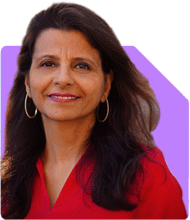Ramalingam Kalirajan |2770 Answers |Ask -Follow
Mutual Funds, Financial Planning Expert - Answered on May 08, 2024
He has an MBA in finance from the University of Madras and is a certified financial planner.
He is the director and chief financial planner at Holistic Investment, a Chennai-based firm that offers financial planning and wealth management advice.... more

Hi I'm 29 yrs old man with salary of 60k month, I wish to built a house by 2-3yrs from now and create a wealth for my retirement by 40 yrs of age, plz help me through it how should I be able to do that?
Firstly, consider starting by creating a detailed financial plan outlining your current financial situation, your goals, and a roadmap to achieve them. This will help you stay organized and focused on your objectives.
To save up for your house in 2-3 years, you'll need to start setting aside a portion of your monthly income. Calculate how much you'll need for the down payment and closing costs, and then work out how much you need to save each month to reach that goal.
Consider investing your savings in low-risk, liquid instruments like fixed deposits or short-term debt funds to ensure that your money is easily accessible when you're ready to buy your house.
For your retirement goal, starting early is key. Since you're aiming to retire by 40, you'll need to prioritize saving and investing aggressively. Maximize contributions to retirement accounts like the Employee Provident Fund (EPF) or the National Pension System (NPS) to take advantage of tax benefits and long-term growth potential.
Additionally, consider investing in a diversified portfolio of equity mutual funds or stocks to build wealth over the long term. While the stock market can be volatile, historically, it has provided higher returns compared to other asset classes over extended periods.
Regularly review and adjust your financial plan as needed to stay on track towards your goals. Remember, consistency and discipline are crucial when it comes to achieving financial success.
Keep up the great work, and don't hesitate to seek advice from a Certified Financial Planner if you need assistance in fine-tuning your financial strategy.
Best of luck on your journey to homeownership and retirement!
You may like to see similar questions and answers below
Ramalingam Kalirajan |2770 Answers |Ask -Follow
Mutual Funds, Financial Planning Expert - Answered on Apr 30, 2024
Ramalingam Kalirajan |2770 Answers |Ask -Follow
Mutual Funds, Financial Planning Expert - Answered on Apr 16, 2024
Ramalingam Kalirajan |2770 Answers |Ask -Follow
Mutual Funds, Financial Planning Expert - Answered on May 20, 2024
Ramalingam Kalirajan |2770 Answers |Ask -Follow
Mutual Funds, Financial Planning Expert - Answered on May 04, 2024
Ramalingam Kalirajan |2770 Answers |Ask -Follow
Mutual Funds, Financial Planning Expert - Answered on May 14, 2024
Patrick Dsouza |271 Answers |Ask -Follow
CAT, XAT, CMAT, CET Expert - Answered on May 20, 2024
Komal Jethmalani |311 Answers |Ask -Follow
Dietician, Diabetes Expert - Answered on May 20, 2024
Komal Jethmalani |311 Answers |Ask -Follow
Dietician, Diabetes Expert - Answered on May 20, 2024
Komal Jethmalani |311 Answers |Ask -Follow
Dietician, Diabetes Expert - Answered on May 20, 2024
Ramalingam Kalirajan |2770 Answers |Ask -Follow
Mutual Funds, Financial Planning Expert - Answered on May 20, 2024
Ramalingam Kalirajan |2770 Answers |Ask -Follow
Mutual Funds, Financial Planning Expert - Answered on May 20, 2024
Ramalingam Kalirajan |2770 Answers |Ask -Follow
Mutual Funds, Financial Planning Expert - Answered on May 20, 2024
Ramalingam Kalirajan |2770 Answers |Ask -Follow
Mutual Funds, Financial Planning Expert - Answered on May 20, 2024
Ramalingam Kalirajan |2770 Answers |Ask -Follow
Mutual Funds, Financial Planning Expert - Answered on May 20, 2024
Ramalingam Kalirajan |2770 Answers |Ask -Follow
Mutual Funds, Financial Planning Expert - Answered on May 20, 2024






















.jpg)